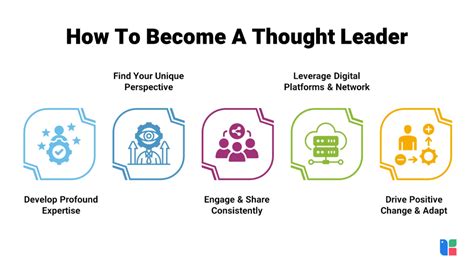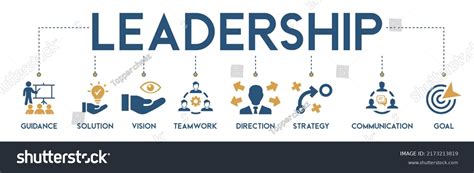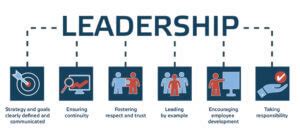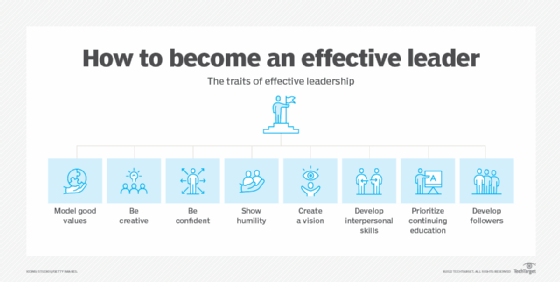In today’s dynamic world, effective leadership is crucial for driving success and inspiring teams. At the heart of great leadership are specific qualities that set exceptional leaders apart. These traits encompass a clear vision and strategic thinking, enabling leaders to guide their teams towards long-term goals with purpose. Effective communication skills ensure clarity and foster collaboration, while emotional intelligence helps leaders connect with and motivate their teams. Strong decision-making capabilities, adaptability, and resilience are vital for navigating challenges and driving progress. Moreover, integrity and accountability build trust and respect. Understanding these essential qualities can help aspiring leaders develop the skills needed for impactful leadership.
rosawblog.com will lead a thorough examination of this topic.
1. Vision and Strategic Thinking
A clear vision and strategic thinking are foundational qualities of an effective leader. Vision provides direction and purpose, enabling leaders to set long-term goals and inspire their teams towards a common objective. A leader with a strong vision not only anticipates future trends but also articulates a compelling narrative that motivates and aligns the team. Strategic thinking complements this vision by involving the ability to plan and execute steps that drive progress. It requires analyzing current situations, foreseeing potential obstacles, and devising actionable strategies to overcome them. Leaders who excel in strategic thinking are adept at balancing short-term demands with long-term aspirations, ensuring that their teams stay focused and agile. By integrating vision with strategic planning, leaders can navigate their organizations through complexities and uncertainties, fostering an environment where innovation and growth can thrive.

2. Effective Communication Skills
Effective communication skills are vital for any successful leader. A leader must convey ideas clearly and persuasively, ensuring that their message is understood by team members at all levels. This involves not only articulating thoughts with clarity but also actively listening to others, fostering an open dialogue. Good communication encourages collaboration and helps build strong relationships within the team, leading to a more cohesive and motivated workforce. Additionally, effective communication skills include the ability to provide constructive feedback and resolve conflicts diplomatically. Leaders who excel in communication are adept at tailoring their message to different audiences and contexts, adapting their style to suit the needs of the moment. This ensures that information is not only delivered but also received and acted upon. By mastering communication, leaders can align their team with organizational goals, drive engagement, and create an environment where everyone feels heard and valued, ultimately contributing to the overall success of the organization.

3. Emotional Intelligence
Emotional intelligence is a crucial trait for effective leadership, as it involves the ability to understand and manage one’s own emotions while empathizing with others. Leaders with high emotional intelligence are adept at recognizing their own emotional responses and those of their team members, allowing them to navigate interpersonal dynamics with sensitivity and insight. This skill helps in building strong relationships, resolving conflicts, and fostering a supportive work environment. By demonstrating empathy and understanding, emotionally intelligent leaders can motivate and inspire their teams, leading to increased trust and collaboration. Furthermore, managing stress and maintaining emotional balance under pressure are essential for guiding teams through challenging situations. Emotional intelligence enhances a leader’s capacity to connect with their team, make informed decisions, and create a positive organizational culture, ultimately contributing to the overall effectiveness and success of their leadership.

4. Decision-Making Capabilities
Decision-making capabilities are pivotal for effective leadership, as they involve the ability to make timely and informed choices that drive organizational success. Leaders must analyze complex situations, weigh various options, and consider potential outcomes before reaching a decision. This process requires a balance of logical reasoning and intuition, allowing leaders to navigate uncertainties and align their choices with the organization’s goals. Strong decision-making involves not only evaluating risks and benefits but also taking responsibility for the outcomes. Leaders who excel in this area are able to make tough calls with confidence, even under pressure, and are skilled at gathering and interpreting relevant information. Additionally, they understand the importance of involving the team in decision-making processes when appropriate, fostering a sense of collaboration and ownership. By making sound decisions and learning from past experiences, leaders can guide their teams effectively, address challenges proactively, and drive continuous improvement within the organization.
5. Adaptability and Resilience
Adaptability and resilience are essential qualities for effective leadership, enabling leaders to thrive in an ever-changing environment. Adaptability involves the ability to embrace change, pivot strategies when necessary, and remain open to new ideas and approaches. Leaders who are adaptable can quickly adjust to shifting priorities, market conditions, or organizational dynamics, ensuring that their teams stay on course despite unforeseen challenges. Resilience complements adaptability by equipping leaders to recover from setbacks and persist in the face of adversity. Resilient leaders maintain a positive outlook, manage stress effectively, and inspire their teams to overcome obstacles. Together, these traits help leaders navigate uncertainty with confidence, maintain focus on long-term goals, and foster a culture of perseverance and innovation. By demonstrating adaptability and resilience, leaders can drive sustained success and guide their teams through periods of transition and growth.
6. Integrity and Accountability
Integrity and accountability are cornerstones of effective leadership, underpinning the trust and respect that leaders earn from their teams. Integrity involves consistently adhering to ethical principles and demonstrating honesty in all actions and decisions. Leaders with high integrity set a standard for behavior by being transparent, fair, and consistent, thereby fostering an environment of trust and reliability. This quality ensures that leaders are respected for their authenticity and commitment to ethical practices, which in turn encourages a similar standard among team members.
Accountability complements integrity by emphasizing the importance of taking responsibility for one’s actions and decisions. Leaders who practice accountability are willing to admit mistakes, learn from them, and make necessary corrections. This openness not only enhances credibility but also builds a culture of responsibility within the organization. When leaders hold themselves accountable, they set a powerful example, encouraging team members to take ownership of their roles and contributions. Together, integrity and accountability help leaders create a positive and ethical organizational culture, driving long-term success and fostering a strong, cohesive team.
In summary, the qualities of vision and strategic thinking, effective communication, emotional intelligence, decision-making capabilities, adaptability and resilience, and integrity and accountability define exceptional leadership. By cultivating these traits, leaders can inspire their teams, navigate challenges, and drive organizational success, creating a positive
rosawblog.com
